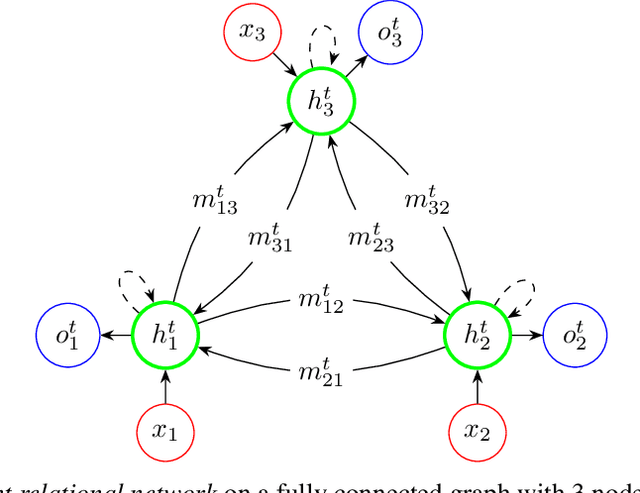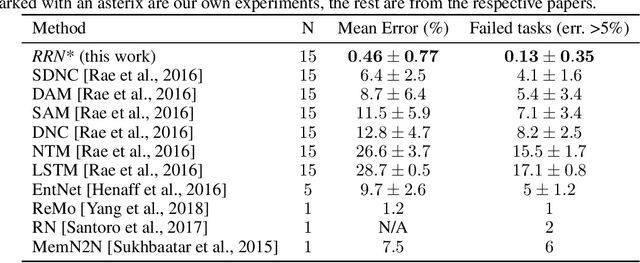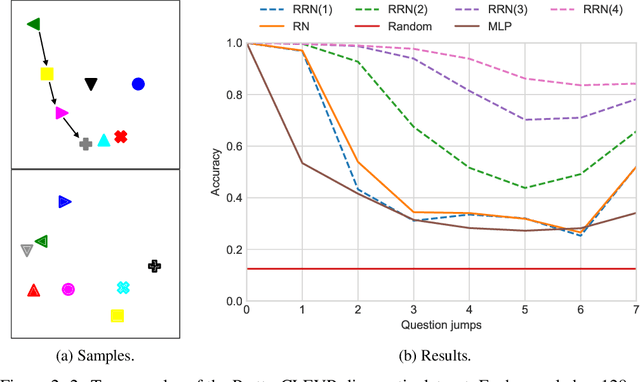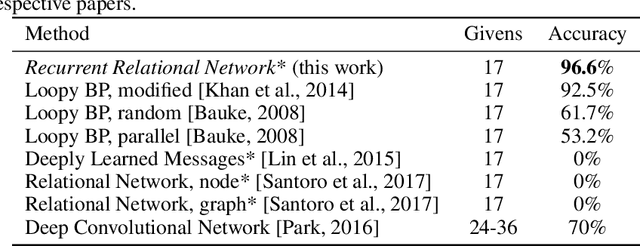Recurrent Relational Networks
Paper and Code
Oct 16, 2018



This paper is concerned with learning to solve tasks that require a chain of interdependent steps of relational inference, like answering complex questions about the relationships between objects, or solving puzzles where the smaller elements of a solution mutually constrain each other. We introduce the recurrent relational network, a general purpose module that operates on a graph representation of objects. As a generalization of Santoro et al. [2017]'s relational network, it can augment any neural network model with the capacity to do many-step relational reasoning. We achieve state of the art results on the bAbI textual question-answering dataset with the recurrent relational network, consistently solving 20/20 tasks. As bAbI is not particularly challenging from a relational reasoning point of view, we introduce Pretty-CLEVR, a new diagnostic dataset for relational reasoning. In the Pretty-CLEVR set-up, we can vary the question to control for the number of relational reasoning steps that are required to obtain the answer. Using Pretty-CLEVR, we probe the limitations of multi-layer perceptrons, relational and recurrent relational networks. Finally, we show how recurrent relational networks can learn to solve Sudoku puzzles from supervised training data, a challenging task requiring upwards of 64 steps of relational reasoning. We achieve state-of-the-art results amongst comparable methods by solving 96.6% of the hardest Sudoku puzzles.
 Add to Chrome
Add to Chrome Add to Firefox
Add to Firefox Add to Edge
Add to Edge